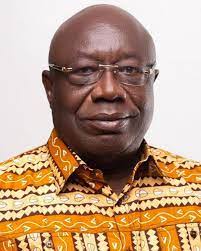By Albert Oppong-Ansah
Accra, Sept. 7, GNA – The Board of Directors of the Nuclear Regulatory Authority (NRA) will soon be inaugurated to facilitate the approval of critical regulations to advance the development of Ghana’s first Nuclear Programme and project.
Dr Kwaku Afriyie, the Minister for Environment, Science, Technology, and Innovation who told the Ghana News Agency in an interview said the Board had been constituted and approved, therefore, the inauguration would be done upon receipt of the relevant letter from the Office of the Chief of Staff.
The interview was to find out the cause of the delay in putting the Board in place since the tenure of the previous one ended in December 2020.
Members are appointed by the President in accordance with Article 70 of the 1992 Constitution.

Dr Afriyie explained that the delay was due to the sensitive and specialised nature of nuclear technology and the importance of its effective regulation.
“It is a very important institution and that is why it has taken a long time for its board to be constituted,” he stated. “It needed a careful selection because that is one of the key institutions, without which Ghana cannot proceed with its nuclear programme.”
The Minister said the government remained committed to the nuclear programme, hence the recent approval by the President for the inclusion of nuclear technology into the national power generation mix.
The development and processing of some critical regulations for Ghana’s Nuclear Power Project have been impeded due to the absence of the governing body for the NRA.
The NRA is one of the three key institutions responsible for the development of Ghana’s first Nuclear Power Programme/Project.
The others are the Ghana Nuclear Power Programme Organisation (GNPPO) and the Nuclear Power Ghana, the owner and operator of the plant.
According to the NRA Act 2015 (Act 895) the Authority’s governing body must consist of a Chairperson, the Director-General, one representative of the Environmental Protection Agency not below the rank of a director, one representative of the National Security Council not below the rank of a director, and three other members with cognate background and experience in the Sciences, at least one of whom is a woman.
A member of the Board appointed otherwise than by reason of that member’s office shall, hold office for a period not exceeding three years and is eligible for re-appointmen; but a member shall not be appointed for more than two consecutive terms.
The Authority is mandated to ensure that radiation and nuclear energy is used by only persons authorised under the Act, for peaceful purposes.
It is also to provide protection of persons and the environment against the harmful effects of radiation hazards; and pursue and ensure strict compliance with the Act and the Regulations.
It is also to facilitate the development of national policies on the regulation and management of activities and practices with respect to—nuclear safety and research, security of nuclear and radioactive materials; radiation.
The NRA regulates the introduction of radiation sources, nuclear materials, equipment or practices that expose workers, patients, the public and the environment to radiation; issue, modify, suspend or revoke authorisation, and determine conditions for authorisation; among other functions.
The GNA has learnt that some 15 draft regulations vital to meeting the second and third phases of Ghana’s Nuclear Programme/Project, as requested by the International Atomic Energy Agency (IAEA), can be submitted to the Attorney General’s Office once they receive the approval of the Board.
They include those on Basic Ionising Radiation Control, Safeguards, Radioactive Waste Management, Site Evaluation, and Requirements for Technical Services.
The rest are on Nuclear Security, Emergency Preparedness and Response, Licensing of Nuclear Installations, and Integrated Management System.
“This function cannot be sub-let to any other institution except the NRA which has the sole authority under section Five of Act 895 to exchange information and cooperate with regulatory authorities of other countries and relevant international organisations on matters of nuclear safety, nuclear security, and safeguards,” an expert told the GNA.
To have clean, reliable, safe power and ensure secure and smooth energy transition, Ghana decided to include nuclear power in its energy mix – solar, hydropower, and thermal.
The deployment of nuclear power in Ghana is also in line with the country’s Green Energy Solutions commitments and the government’s medium to long-term strategy of actualising industrialisation and sustainable socio-economic development, the government has said.
Energy experts estimate that from about 2025, the base load power from the Akosombo and Kpong Hydropower Plants, will reduce from the current 32 per cent to about 25 per cent.
GNA